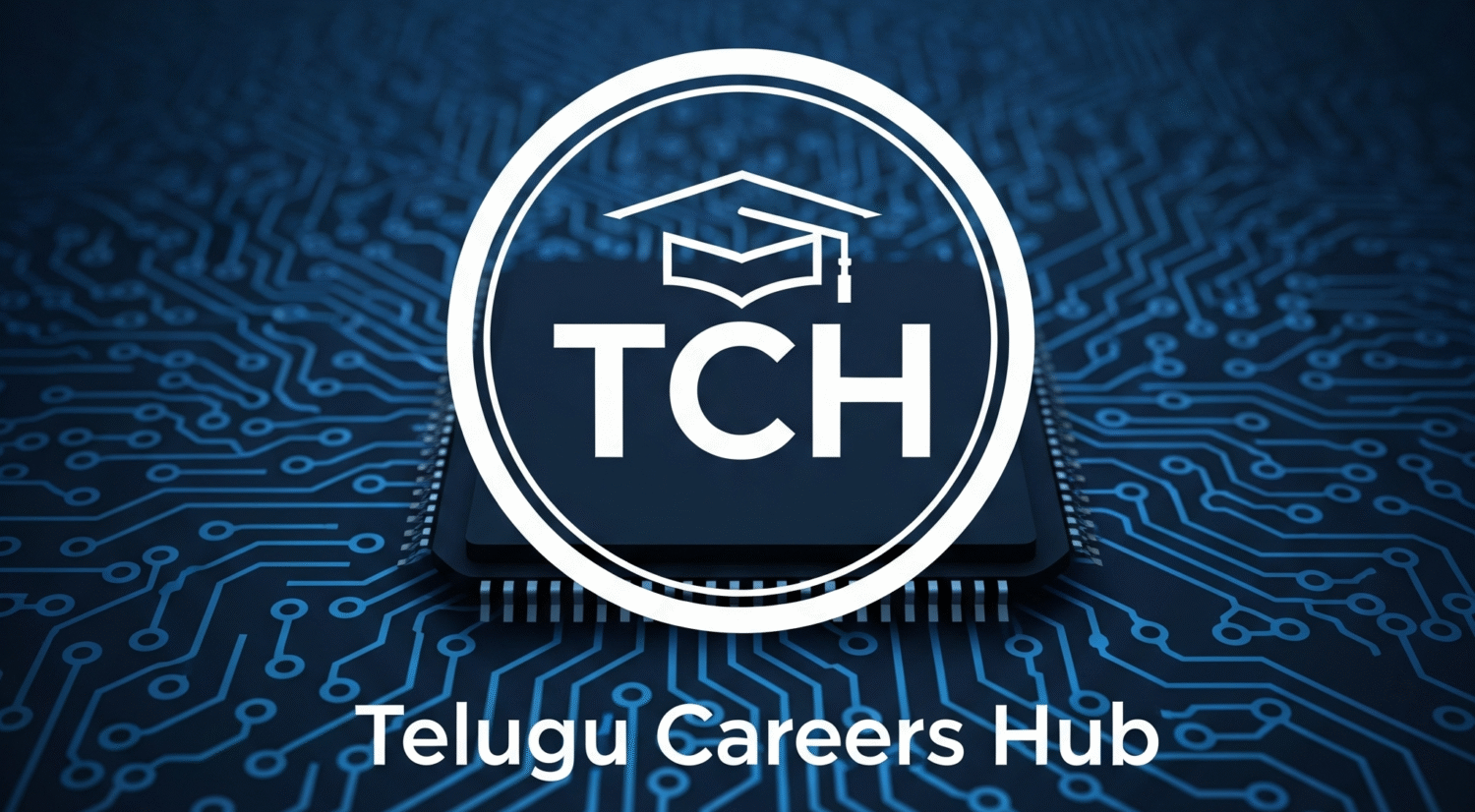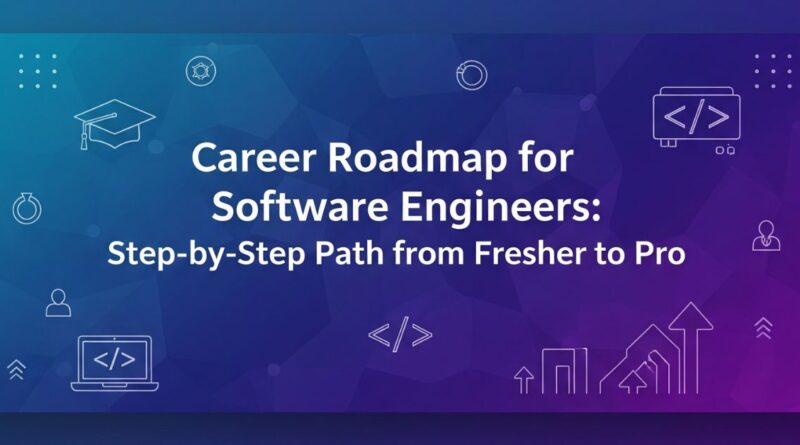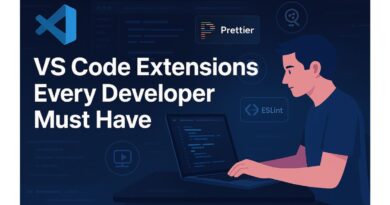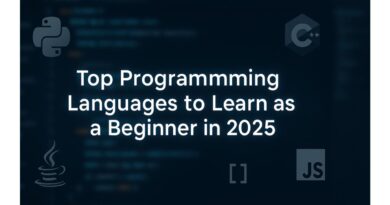🚀 The Ultimate Career Roadmap for Software Engineers: From Fresher to Pro in 2025
🚀 The Ultimate Career Roadmap for Software Engineers: From Fresher to Pro in 2025
👨💻 Introduction: From Fresher to Software Engineer — Your Journey Starts Here
Entering the world of software engineering is exciting, but it can also be overwhelming. If you’re a fresher wondering how to become a software engineer, you’ve likely faced questions like:
-
What skills should I learn first?
-
Should I go into frontend, backend, or DevOps?
-
How do I land my first job?
This software engineer career roadmap is your all-in-one guide. It doesn’t just list skills; it gives you a step-by-step blueprint, packed with actionable advice to help you transition from a beginner to a confident professional in tech.
Let’s dive into this software engineering career guide, designed especially for freshers like you!
🎯 Section 1: Laying the Groundwork – What Does a Software Engineer Actually Do?
Before jumping into tutorials or certifications, it’s important to understand what your future job looks like. Software engineers solve problems using code, collaborate in teams, and constantly improve systems.
🧾 Core Responsibilities:
-
Writing efficient, reusable, and scalable code.
-
Debugging software and fixing bugs.
-
Collaborating with QA, product teams, and other engineers.
-
Using version control systems like Git.
-
Participating in design and code reviews.
🎓 Why It Matters:
-
Helps you understand what to expect in a job.
-
Aligns your learning with real-world requirements.
-
Gives clarity in setting short and long-term goals.
🧭 Section 2: Choose Your Tech Track – Know Where You’re Headed
The world of software is diverse. Each specialization offers a unique set of challenges and opportunities. Picking your focus early can help streamline your efforts.
🔍 Major Tracks:
-
Frontend Development: Focuses on the user interface (React, HTML, CSS, JavaScript).
-
Backend Development: Deals with databases, APIs, and server-side logic (Node.js, Java, Python).
-
Full-Stack Development: Combines both frontend and backend skills.
-
DevOps/Cloud: Manages deployments, scalability, and automation using tools like Docker, Kubernetes, AWS.
🤔 How to Choose:
-
Try mini-projects in each area.
-
Take online quizzes like “Which developer career suits me?”
-
Watch real dev vlogs on YouTube to understand daily tasks.
🔤 Section 3: Learn Programming Fundamentals – Your Building Blocks
All successful software engineers start with the basics. Mastering programming fundamentals gives you the confidence to tackle complex problems later.
🧩 Start With:
-
Languages: C, C++, Java, Python (choose one to start).
-
Data Structures & Algorithms (DSA): Arrays, Linked Lists, Trees, Graphs, Sorting, Searching.
-
Object-Oriented Programming (OOP): Understand classes, objects, encapsulation, and inheritance.
-
Problem Solving: Practice on platforms like LeetCode, HackerRank, Codeforces.
📚 Resources:
-
“DSA Self-Paced” by GeeksforGeeks
-
“Cracking the Coding Interview” by Gayle Laakmann
-
Coursera’s Python for Everybody (by University of Michigan)
🛠 Section 4: Build Real Projects – Turn Theory into Practice
Recruiters don’t just want marks or degrees. They want proof of work — real, functional projects.
🔨 Projects You Can Build:
-
Frontend: Responsive Portfolio Website using HTML/CSS + JavaScript.
-
Backend: RESTful API with Node.js and MongoDB.
-
Full-Stack: Blog platform with authentication and a database.
-
DevOps: CI/CD pipeline on GitHub Actions + Docker.
🧰 Tools to Use:
-
Git and GitHub for version control.
-
VS Code for coding.
-
Firebase, MongoDB Atlas, or PostgreSQL for databases.
💡 Pro Tip:
Upload every project to GitHub with a good README file and deployment link (use Netlify, Vercel, or Heroku).
📄 Section 5: Build a Professional Resume & LinkedIn Profile
Once you’re ready to start applying, you’ll need a killer resume and LinkedIn profile. Make it short, focused, and impactful.
📋 Resume Must-Haves:
-
Contact info, LinkedIn, GitHub, and portfolio links.
-
Skills (languages, tools, frameworks).
-
Academic background.
-
Projects with tech stack and features.
-
Internships or freelance experience (if any).
🔗 LinkedIn Tips:
-
Use a clear profile photo and banner.
-
Add keywords in the headline: “Aspiring Software Engineer | Java | React | Open Source Contributor”.
-
Post regular updates (projects, learnings, certifications).
✨ Bonus Tip:
Create a personal website using GitHub Pages or portfolio builders like Webflow, Framer, or Carrd.
📥 Section 6: Apply for Jobs – The Right Way
Applying randomly won’t help. You need a targeted, consistent approach to break into your first job.
🧑💼 Job Search Strategy:
-
Use platforms: LinkedIn, Naukri, Internshala, CutShort, TechJobFair.
-
Set daily job application goals (e.g., 10/day).
-
Apply to startups — they hire more freshers and provide faster learning.
-
Focus on referrals: Message seniors, engage with tech creators, and ask for help.
🗂 Track Applications:
-
Maintain a Notion table or Excel sheet with status updates.
-
Record feedback from interviews to improve.
🚀 Don’t Forget:
-
Apply for internships if full-time roles are scarce.
-
Attend off-campus drives and hiring challenges like TCS NQT, CodeVita, Cognizant GENC.
🤝 Section 7: Prepare for Interviews – Crack DSA & HR Questions
Your interview prep should be intense, structured, and well-planned.
📘 Technical Round Prep:
-
Solve at least 100–150 DSA questions.
-
Revise core CS topics: DBMS, OS, CN, OOP.
-
Know your projects in and out.
-
Use mock interview platforms: InterviewBuddy, Pramp, Exponent.
💬 HR Round Prep:
-
Prepare answers using the STAR method.
-
Common questions: “Tell me about yourself”, “What’s your strength/weakness?”, “Where do you see yourself in 5 years?”
-
Practice storytelling about your learning journey and career goals.
🎯 Interview Essentials:
-
Always ask 1-2 smart questions to the interviewer.
-
Send a follow-up thank-you email post-interview.
🧪 Section 8: Gain Experience Through Internships, Freelancing & Hackathons
Experience beats everything, especially when you’re a fresher.
📌 Internships:
-
Platforms: Internshala, LetsIntern, HackerEarth Hiring Challenges.
-
Apply for unpaid internships if you’re learning.
-
Aim to get startup experience — flexible roles and lots of learning.
🔗 Freelancing:
-
Sites: Fiverr, Upwork, Truelancer.
-
Pick gigs like website design, automation scripts, API integration.
-
Keep a portfolio of all freelance projects.
🏆 Hackathons:
-
Participate in Smart India Hackathon, Devfolio, MLH.
-
Great place to learn teamwork, quick thinking, and real-world problem-solving.
🌐 Section 9: Network & Contribute – Open Source, Tech Communities, Meetups
Your network is your net worth in tech. Being active in the community keeps you inspired and exposed to opportunities.
🧑💻 Contribute to Open Source:
-
Start with beginner-friendly issues in repositories labeled “good first issue”.
-
Learn Git/GitHub workflow.
-
Projects: EddieHub, GirlScript, 30DaysOfCode.
👥 Join Communities:
-
Twitter/X: Follow developers, interact, and share your learning.
-
Discord Servers: MLH, Tech Twitter, Coding Ninjas Community.
-
Telegram/WhatsApp Groups: For job updates, coding tips, and referral networks.
🧠 Attend Events:
-
Google Developer Groups (GDG)
-
Hackathons and virtual tech conferences
-
Local meetups or tech fairs
📈 Section 10: Think Long-Term – Career Growth After Your First Job
Once you’re in, growth depends on learning, impact, and visibility. Don’t get comfortable — keep upgrading!
🧭 Within First Year:
-
Volunteer for complex modules.
-
Shadow senior developers and ask questions.
-
Pick up side projects or certifications.
🧠 Skill Expansion Ideas:
-
Learn Cloud Platforms (AWS, Azure, GCP).
-
Get DevOps exposure (CI/CD, Docker, Jenkins).
-
Try AI/ML or Blockchain to pivot into trending domains.
🔝 Career Ladders:
-
Senior Developer (2–3 years)
-
Team Lead / Tech Lead (4–6 years)
-
Engineering Manager / Architect (6–10 years)
-
CTO / Head of Engineering (10+ years)
🏁 Conclusion: You’re Not Just Learning Code, You’re Building a Career
Your journey from fresher to software engineer will test your patience, discipline, and hunger to learn. But with a strategic career path for software engineers, you can speed up your progress and stand out in a crowded market.
Take action today:
-
Choose a track.
-
Build projects.
-
Apply smart.
-
Practice relentlessly.
And remember, even the best developers once Googled “how to become a software engineer” — just like you did.
Follow us for more Updates: Telugu Careers Hub




